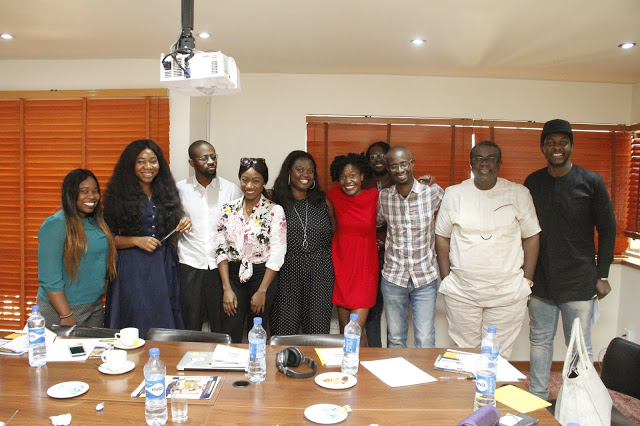On October 18, 2018, WAVE, with the support of the Ford Foundation, convened a roundtable of TV/Film Production and Media experts to discuss the skills gaps (read: opportunities) in the sector. We wanted to know what the biggest skills gaps were in the sector - in terms of depth (must acute/expensive gaps) as well as breadth (largest volume gaps). More specifically, we wanted to know where the hundreds of thousands of work opportunities (not jobs) would be generated in the creative industry and what would be required to scale the quality of training programs generating skills/talent for the sector. In attendance were James Omokwe (Feemo), Femi Ogunsanwo (FM Film Studio), Victor Sanchez Aghahowa (TatafoHQ), Paul Nwulu (Ford Foundation), Bolaji Kekere-Ekun (37th State), Chioma Onyewe (Raconteur Productions), Jude Idada (Playwright / Filmmaker), Ojoma Ochai (British Council), Ade Laoye (Actress), Chike Maduegbuna (Afrinolly) and Rita Omovbhude (Street Project Foundation).
Some of the largest skills gaps identified were in the areas of production management, production design, sound and colour editing. Insights generated around the question of "scaling quality" included:
- the introduction of occupational standards to define / benchmark / standardize the minimum requirements within each competency
- develop reliable skills validation to vet graduates of various skills training programs and hold training providers accountable for outcomes
- showcase centres of excellence that are known for consistently and reliably delivering skills at the required occupational standards
- create avenues for practitioner to become skills trainers through participating in skills training programs or designing scalable apprenticeship systems within their production sets
- help training programs become more demand-driven
- grow the demand and revenue-generating capacity for the creative industry, which will in turn fuel demand for more talent
This convening was part of a movement building effort to level the playing field for young people to access the skills and opportunity to become what they imagine. Essentially, to do this, we need to rewire the education-to-employment system so that educators focus on developing competencies (supply) that employers tell them they need (demand). Connecting the demand for competencies to the supply of those competencies all begins with a conversation, and that's what the movement is about.








No comments